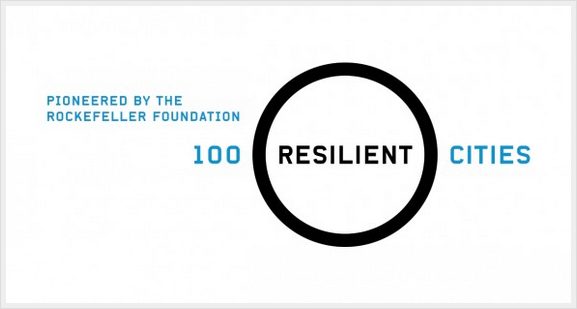
Photo: 100-Resilient-Cities
Thirty-five cities join the 100 Resilient Cities Network
03 December 2014
by Richard Forster
At the Urban Resilience Summit in Singapore today, the 100 Resilient Cities Network, pioneered by The Rockefeller Foundation, has announced the new cities which have been selected to join the association. The 35 cities have demonstrated a commitment to building their own capacities to navigate the shocks and stresses of an increasingly complex 21st century.
“During our first 18 months, we’ve seen our first cohort of cities mature, appoint Chief Resilience Officers, and embark on their own resilience strategy processes,” said Michael Berkowitz, President of 100 Resilient Cities. “No doubt this momentum contributed to the immense response we saw to the second round of the 100 Resilient Cities Challenge, with 331 exceptional applications from cities around the world, submitted in seven languages.”
Each new city was asked to present a clear and compelling description of their major resilience challenges, how they are approaching and planning for resilience to decrease vulnerabilities, and how they plan to partner with the network.
After an exhausting review of the applications, a panel of esteemed judges including Donald Kaberuka, President of the African Development Bank, Josette Sheeran, President and CEO of the Asia Society, and José María Figueres, former President of Costa Rica, recommended the next set of 35 member cities.
“It wasn’t easy to choose only 35, we had so many passionate, vibrant entries, hundreds of compelling and inspiring conversations with incredible mayors in applicant cities, and hours of intense internal debate,” added Berkowitz.
100 Resilient Cities is dedicated to helping cities around the world become more resilient to the physical, social and economic challenges that are a growing part of the 21st century. The network supports the adoption and incorporation of a view of resilience that includes not just the shocks, earthquakes, fires, and floods, but also the stresses that weaken the fabric of a city on a day-to-day or cyclical basis.
Within the network cities will receive the support to hire and empower a Chief Resilience Officer, a central point of contact within each city to coordinate and oversee the resilience activities, coordinate stakeholders, and ensure resilience is a city-wide priority.
The Chief Resilience Officer will in turn receive support to develop a resilience plan, which will take stock of existing efforts, identify priority areas of needs, conduct analysis to understand the interconnected risks and opportunities, and develop a clear and actionable set of priorities and initiatives.
Sorted by region, the next 35 cities are:
Africa
- Accra (Ghana)
- Arusha (Tanzania)
- Enugu (Nigeria)
- Kigali (Rwanda)
Latin America And The Caribbean
- Cali (Colombia)
- Juarez (Mexico)
- San Juan (United States)
- Santa Fe (Argentina)
- Santiago de los Caballeros (Dominican Republic)
- Santiago, Metropolitan Region (Chile)
Europe
- Athens (Greece)
- Barcelona (Spain)
- Belgrade (Serbia)
- London (Great Britain)
- Lisboa (Portugal)
- Milan (Italy)
- Paris (France)
- Thessaloniki (Greece)
Middle East
- Amman (Jordan)
North America
- Boston (United States)
- Chicago (United States)
- Dallas (United States)
- Montreal (Canada)
- Pittsburgh (United States)
- St. Louis (United States)
- Tulsa (United States)
Oceania
- Sydney (Australia)
- Wellington City (New Zealand)
South, Southeast, and East Asia
- Bengaluru (India)
- Chennai (India)
- Deyang (China)
- Huangshi (China)
- Phnom Penh (Cambodia)
- Singapore (Singapore)
- Toyama (Japan)










